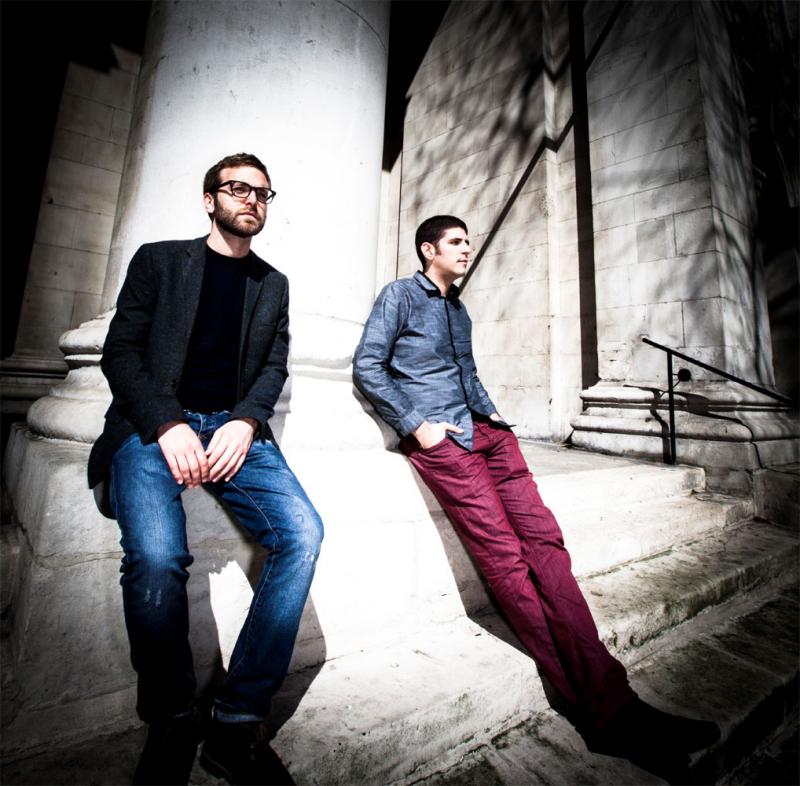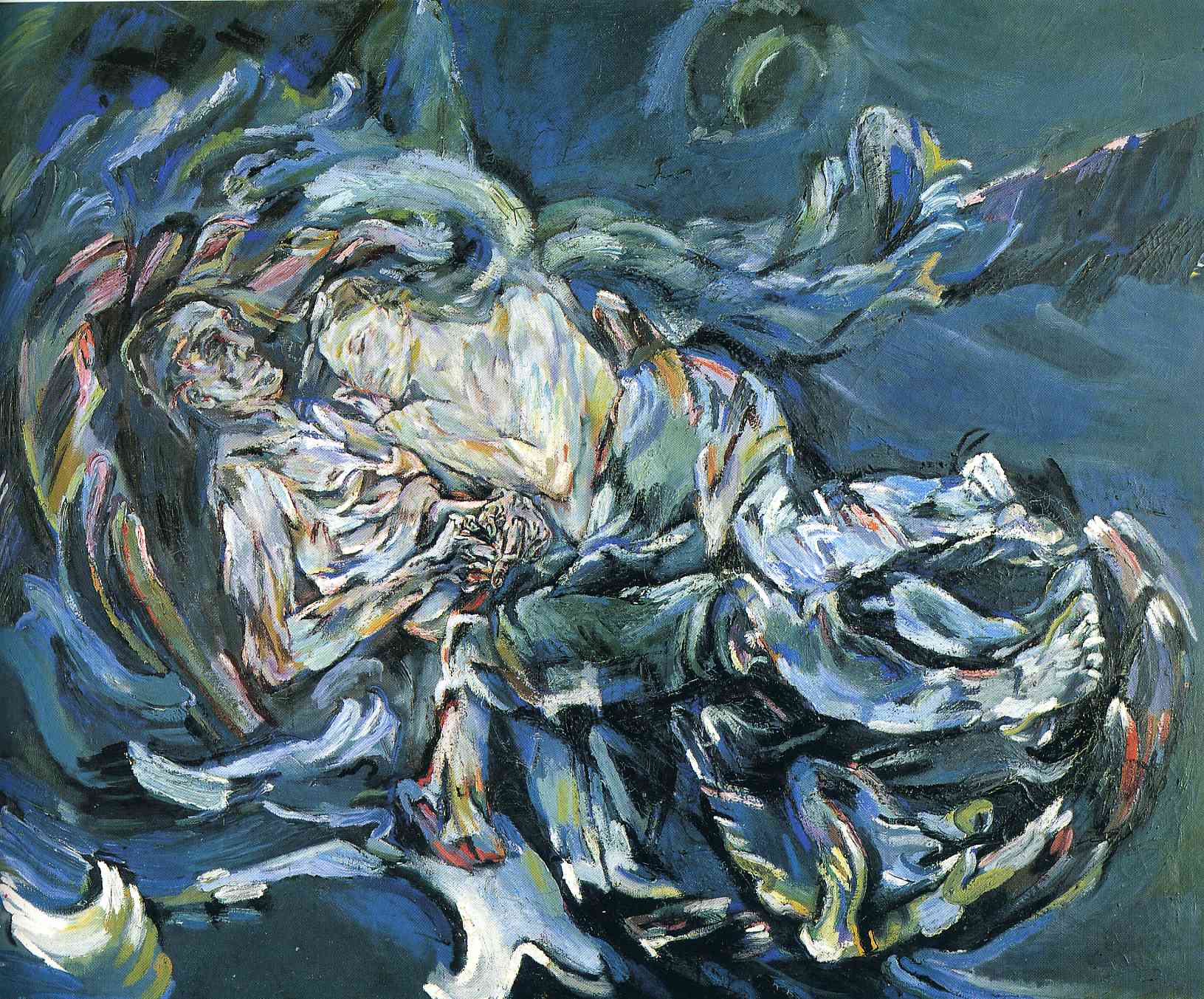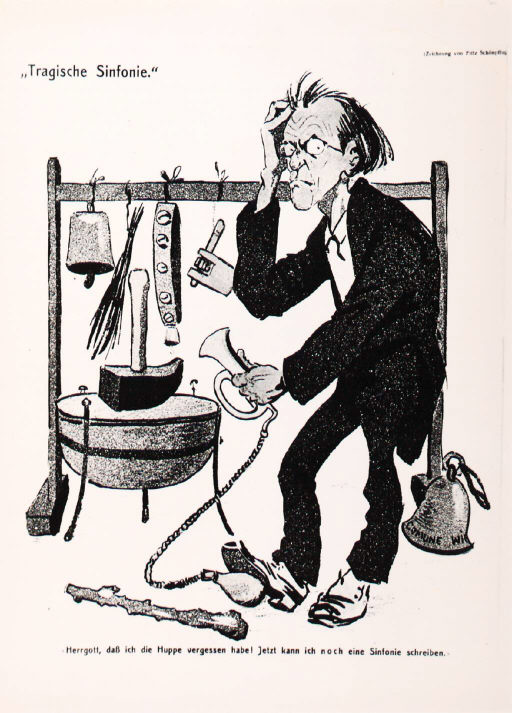Françoise-Green Piano Duo, St John's Smith Square | reviews, news & interviews
Françoise-Green Piano Duo, St John's Smith Square
Françoise-Green Piano Duo, St John's Smith Square
Mahler's Sixth for four hands at one piano brings insight and stamina

Who wouldn't wish to have been a fly on the wall during those pre-recording days when composers and their friends played piano-duet arrangements of the great orchestral works? Any notion that we don't need such reductions anymore was swept aside by Antoine Françoise and Robin Green in the fourth concert of an untrumpeted but brilliantly conceived piano-duo series matching transcriptions of 20th-century Viennese masterworks with Mozart and/or Schubert and five world premieres.
The programme might have been subtitled "Men Who Loved Alma". Not Mozart, of course, whose teenage jeu d'esprit the four-hand Sonata in D opened the concert, but rather Mahler, who married Alma Schindler with far from untroubled results, Zemlinsky, who pined after her, and Kokoschka, whose 1914 painting Bride of the Wind (pictured below) shows himself and Alma in elemental embrace and inspired Alissa Firsova's piece of the same title.
 Françoise and Green made light of its chord-cluster difficulties, almost elegantly balancing the cosmic washes of sound – magnificent resonances from the sustaining pedal – with singing lines of rhythmic firmness. The glowing textures were ideally supported by the St John's acoustics – this is a work which would have sounded too dry in the Queen Elizabeth Hall, too overpowering in the Wigmore – and the essential radiance of Firsova's fine invention found its natural conclusion in a sudden, magical final triad. Bride of the Wind was the perfect contrast, too, to the Mozart, where a premonition of Cherubino's "Voi che sapete" in the first movement was balanced by a mock-military march à la "Non piu andrai" in the sparkling rondo.
Françoise and Green made light of its chord-cluster difficulties, almost elegantly balancing the cosmic washes of sound – magnificent resonances from the sustaining pedal – with singing lines of rhythmic firmness. The glowing textures were ideally supported by the St John's acoustics – this is a work which would have sounded too dry in the Queen Elizabeth Hall, too overpowering in the Wigmore – and the essential radiance of Firsova's fine invention found its natural conclusion in a sudden, magical final triad. Bride of the Wind was the perfect contrast, too, to the Mozart, where a premonition of Cherubino's "Voi che sapete" in the first movement was balanced by a mock-military march à la "Non piu andrai" in the sparkling rondo.
If there's mockery in the marches of Mahler's Sixth Symphony, it's always of the grimmest sort. The duo kept a very firm grip on the bold outlines of the first movement; to have gone at it hell for leather – and to have included the exposition repeat – would have exhausted both them and us prematurely. Zemlinsky leaves very little out in the so-called "Alma" second subject until the climax – semiquaver inner lines were always impressively handled – and keeps tremolos to a minimum in the high-pastures idyll at the centre of the movement.
 There was still tension here; all the more reason for tears of relief, then, when Françoise articulated the "old-fashioned" trio theme of the scherzo – placed second, as it should be – with such poise and beauty. This, the bittersweet Andante melody and the noble theme of hope in the furious finale all came closer than in the orchestral version to the world of Schubert, his piano music especially, and moved me much more than many concert performances of the fully-scored original.
There was still tension here; all the more reason for tears of relief, then, when Françoise articulated the "old-fashioned" trio theme of the scherzo – placed second, as it should be – with such poise and beauty. This, the bittersweet Andante melody and the noble theme of hope in the furious finale all came closer than in the orchestral version to the world of Schubert, his piano music especially, and moved me much more than many concert performances of the fully-scored original.
Did we miss the exotic orchestration (caricatured above), the percussion battery including xylophone, cowbells and wooden hammer (considered here, apparently, as a possible addition, but discarded as a distraction; Green's terrifying lower resonance told us where the axe was falling)? Only, perhaps, in the misty introduction of the finale, and the final gearing-up of the apocalyptic marching when at least another pair of hands is needed for Mahler's multiple strainds.
Otherwise, the harmonic richness emerged with exemplary clarity, tempo changes were masterly, space was always given for passages of special significance. How the two kept a clear head throughout is something of a miracle, but they can now claim to have reached the summit of a piano-duo Everest with aplomb, and descended just as safely. Shame about the small if distinguished audience, but the rapt silences played their part in the magic of the evening. Don't miss the final concert of the series.
rating
Explore topics
Share this article
The future of Arts Journalism
You can stop theartsdesk.com closing!
We urgently need financing to survive. Our fundraising drive has thus far raised £49,000 but we need to reach £100,000 or we will be forced to close. Please contribute here: https://gofund.me/c3f6033d
And if you can forward this information to anyone who might assist, we’d be grateful.

Subscribe to theartsdesk.com
Thank you for continuing to read our work on theartsdesk.com. For unlimited access to every article in its entirety, including our archive of more than 15,000 pieces, we're asking for £5 per month or £40 per year. We feel it's a very good deal, and hope you do too.
To take a subscription now simply click here.
And if you're looking for that extra gift for a friend or family member, why not treat them to a theartsdesk.com gift subscription?
more Classical music
 Solomon, OAE, Butt, QEH review - daft Biblical whitewashing with great choruses
Even a top soprano and mezzo can’t make this Handel paean wholly convincing
Solomon, OAE, Butt, QEH review - daft Biblical whitewashing with great choruses
Even a top soprano and mezzo can’t make this Handel paean wholly convincing
 Two-Piano Gala, Kings Place review - shining constellations
London Piano Festival curators and illustrious friends entertain and enlighten
Two-Piano Gala, Kings Place review - shining constellations
London Piano Festival curators and illustrious friends entertain and enlighten
 Echo Vocal Ensemble, Latto, Union Chapel review - eclectic choral programme garlanded with dance
Beautiful singing at the heart of an imaginative and stylistically varied concert
Echo Vocal Ensemble, Latto, Union Chapel review - eclectic choral programme garlanded with dance
Beautiful singing at the heart of an imaginative and stylistically varied concert
 Scott, Irish Baroque Orchestra, Whelan, RIAM, Dublin review - towards a Mozart masterpiece
Characteristic joy and enlightenment from this team, but a valveless horn brings problems
Scott, Irish Baroque Orchestra, Whelan, RIAM, Dublin review - towards a Mozart masterpiece
Characteristic joy and enlightenment from this team, but a valveless horn brings problems
 Classical CDs: Voice flutes, flugelhorns and froth
Baroque sonatas, English orchestral music and an emotionally-charged vocal recital
Classical CDs: Voice flutes, flugelhorns and froth
Baroque sonatas, English orchestral music and an emotionally-charged vocal recital
 Kanneh-Mason, Britten Sinfonia, Shave, Milton Court - a grin and a big beaming smile
A pair of striking contemporary pieces alongside two old favourites
Kanneh-Mason, Britten Sinfonia, Shave, Milton Court - a grin and a big beaming smile
A pair of striking contemporary pieces alongside two old favourites
 theartsdesk at the New Ross Piano Festival - Finghin Collins’ musical rainbow
From revelatory Bach played with astounding maturity by a 22 year old to four-hand jazz
theartsdesk at the New Ross Piano Festival - Finghin Collins’ musical rainbow
From revelatory Bach played with astounding maturity by a 22 year old to four-hand jazz
 First Person: Manchester Camerata's Head of Artistic Planning Clara Marshall Cawley on questioning the status quo
Five days of free events with all sorts of audiences around Manchester starts tomorrow
First Person: Manchester Camerata's Head of Artistic Planning Clara Marshall Cawley on questioning the status quo
Five days of free events with all sorts of audiences around Manchester starts tomorrow
 Goldscheider, Brother Tree Sound, Kings Place review - music of hope from a young composer
Unusual combination of horn, strings and electronics makes for some intriguing listening
Goldscheider, Brother Tree Sound, Kings Place review - music of hope from a young composer
Unusual combination of horn, strings and electronics makes for some intriguing listening
 theartsdesk Q&A: composer Donghoon Shin on his new concerto for pianist Seong-Jin Cho
Classical music makes its debut at London's K-Music Festival
theartsdesk Q&A: composer Donghoon Shin on his new concerto for pianist Seong-Jin Cho
Classical music makes its debut at London's K-Music Festival

Add comment